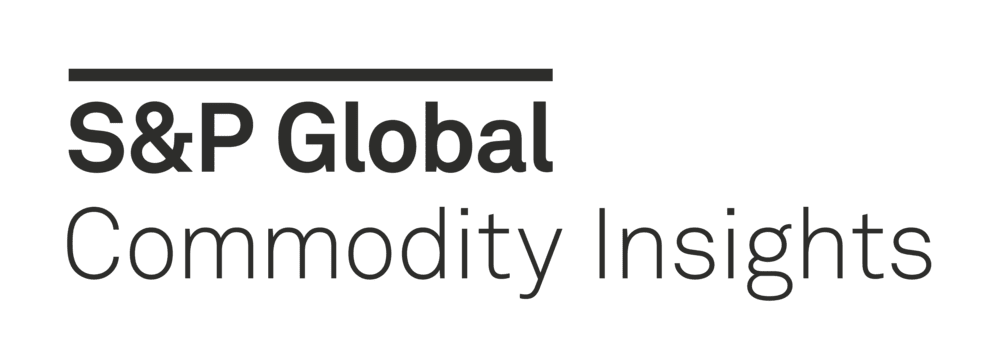Featured Topics
Featured Products
Events
S&P Global Offerings
Featured Topics
Featured Products
Events
S&P Global Offerings
Featured Topics
Featured Products
Events
S&P Global Offerings
Featured Topics
Featured Products
Events
Our Methodology
Methodology & Participation
Reference Tools
S&P Global
S&P Global Offerings
S&P Global
Our Methodology
Methodology & Participation
Reference Tools
S&P Global
S&P Global Offerings
S&P Global
27 Aug 2024 | 10:06 UTC — Insight Blog

Featuring S&P Global Energy
Hedge funds are significantly influencing European gas and LNG by increasing net-long positions, while South Korea's crude imports are expected to remain strong due to extended freight incentives. Additionally, Asia's commitment to sustainable fuel is gaining momentum and Brazil's polyethylene terephthalate recyclers face ongoing challenges from rising feedstock costs.
What's happening? Hedge funds have continued to increase their net-long positions in the European natural gas and LNG markets week on week to reach multiyear highs, with traders seeing funds' positions as the main drivers for the bullishness as well as uncertainty. The net-long position of investment funds increased nearly 14% in the week ending Aug. 16,, marking the strongest stance since July 2, 2021, according to Intercontinental Exchange data.
What's next? Funds are taking a net-long position for 2025, sources said. Given the delays of new LNG supply for 2025, as well as the likely expiry of the Russia-Ukraine transit agreement, traders have seen funds take an increasingly net-long position despite the structurally bearish gas and LNG markets in Europe in the near term ahead of the 2024 winter.
What's happening? The South Korean government has been providing freight incentives for crude imports from regions other than the Middle East in an effort to encourage refiners to diversify crude supply sources. Seoul has extended to Dec. 31, 2027, a mechanism that was set to expire at the end of end-2024 that entitles shipments from the Americas, Africa, the North Sea and Mediterranean markets to a freight rebate of up to Won 16/liter (1.4 cents/liter) for the cost difference between lifting Persian Gulf grades, according to the Ministry of Trade, Industry and Energy.
What's next? South Korean refiners are poised to continue purchasing US crude over the coming years, driven by attractive cracking margins and highly efficient logistics. The South Korea-US free trade agreement alone allows cost cuts of up to $2/b for WTI Midland crude purchases and the extended freight rebate would provide South Korean refiners a significant edge over other Asian refiners in terms of overall refining margins, refinery sources said.
Japan, Australia and nine Southeast Asian countries have agreed to
develop an extensive sustainable fuels supply chain, primarily focusing on biofuels and other renewable energy sources. This pivotal commitment was formalized at the recent Asia Zero Emission Community Ministerial Meeting in Jakarta. The agreement addresses the rising demand for sustainable aviation fuel, biofuels, hydrogen and ammonia, and includes the creation of a detailed roadmap for establishing these supply chains. The participating nations will also collaborate on best practices for the production, distribution and retailing of cleaner fuels.
What's next? AZEC in Jakarta, funded by Japan, will be pivotal in facilitating information exchange, policy development and regional decarbonization projects. A key development includes a memorandum of understanding between Indonesian and Japanese entities to produce SAF from low-grade coconut oil, emphasizing local sustainable fuel sources. The AZEC roadmap outlines over 400 projects focused on sustainable fuel supply chains, including biomass and other renewables, with support from the Asia Zero Emission Center at Economic Research Institute for ASEAN and East Asia, which will drive regional decarbonization and climate goals through initiatives like carbon credit markets.
What's happening? Brazil's PET recycling industry is grappling with insufficient feedstock supply and low margins. Rising competition for scrap has considerably increased prices for post-consumer PET bales in 2024. However, recyclers struggle to pass these costs to downstream flakes, which are capped by the competitively priced virgin resin from Southeast Asia, leading to near-negative margins. The industry is currently operating at only 70% of its installed capacity.
What's next? In the absence of mandates for post-consumer recycled content, marginal buyers may continue to opt for cheaper virgin resin. Although higher bale prices are drawing investments into scrap collection, supply challenges persist. Current market dynamics indicate that the near to medium term will not see much relief.
Reporting and analysis by Aly Blakeway, Thomas Seth, Nikita Pravilshchikov, Philip Vahn, Samyak Pandey, Gustavo Kruger